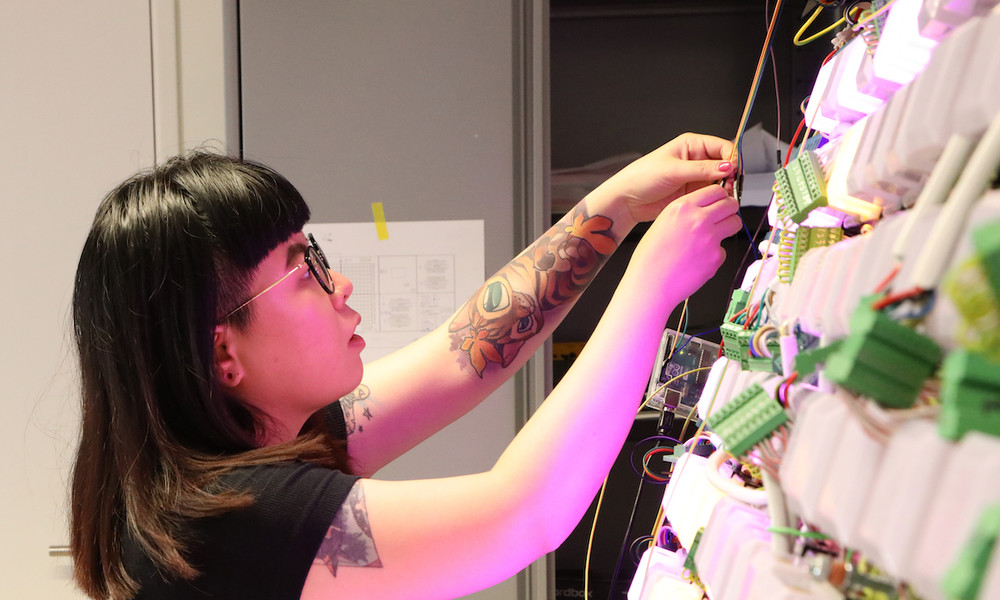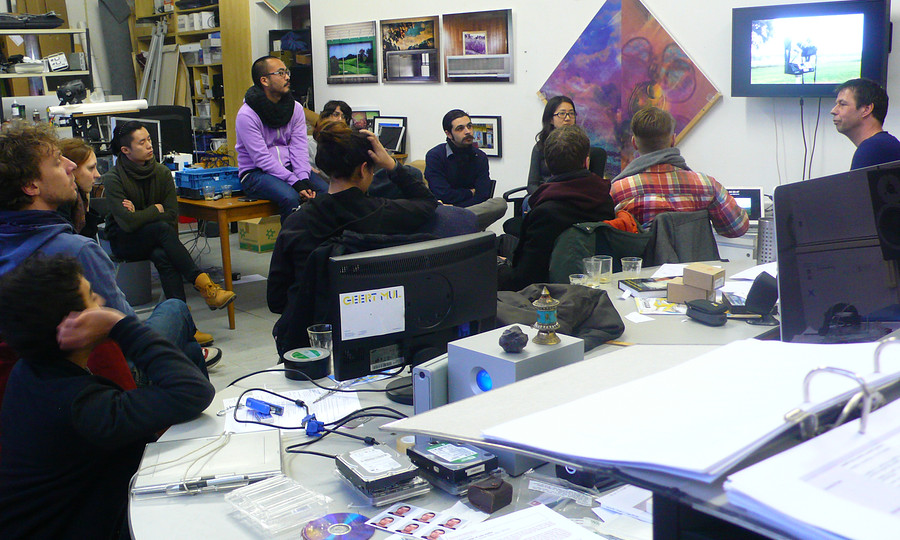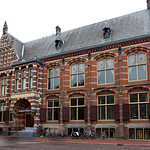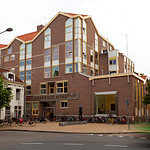MADtech
- Master
- Full-time
- 2 years
MADtech

Media performers, artists and designers doing strange and unexpected things with technology: that is what the MADtech study programme is about. You are invited to employ and explore hybrid technologies in order to imagine, interpret and change human interaction within a transforming world.
During your master’s, you will be involved with projects that combine working in research, education and industry. Through applied research you come up with innovative solutions for genuine societal issues. Below, you can find some examples of projects our master’s students engage in.
You are encouraged to apply a tinkering playfulness and have an experimental mentality, which are the key ingredients of your development and artistic research. This mentality, combined with a critical reflective attitude and conceptual skills, leads to unexpected perspectives, and will result in artistic, multimedial, experimental design or performative work.

MADtech students come from various backgrounds and fields of media, art, or design. They all share a fascination for technology, that transcends the mere use of it as a tool with predefined and process-shaping functionality. Instead, technologies and its influences are examined critically, researched conceptually, used creatively in non-standard ways. They are developed individually to enable the creation of specific MADtech strangeness.
The combination of several disciplines in our student groups will give you the opportunity to develop your artistic vision, while deploying a hybrid artistic practice as an autonomous media performer, artist and/or designer. As your work engages with the world, you’ll grow both as an individual and in your artistic practice, reinforcing the power of your imagination as well as exploring your own connection to a transforming and technologically charged society.
The first year of this study programme is mostly about exploring your chosen field. You will carry out your own experiments in our Hybrid Arts Lab, tinker with new technology for creative programming and explore research possibilities in art, design and performative practices. This will allow you to improve your knowledge and skills, get to know the international field of practice, forge new concepts and discover avenues of artistic research. In your first year, you will spend a lot of time in Hybrid Arts Lab, where you will devise and carry out your own experiments. In addition, you will attend theory and research courses at the University of Groningen and take part in a joint research course 'Image & Experience in a technologically charged society' with master students of the University of Groningen. There is also plenty of time to discuss the results of experiments, workshops, research projects and your own progress with fellow students, experts and the public. Furthermore, you will visit relevant institutions, festivals, workplaces and centres of research: individually or as a group. Preparing for the second year during your first year, you will gradually start to focus on the area you want to concentrate on in your second year, gathering ideas, improving your skills and gaining new knowledge to prepare for your practical research. This will help you to develop and refine the research plan that you will carry out in the second year and which will form the basis for your master's thesis. At the end of your first year, your work will be assessed to determine whether you are ready to start the second year.
At the start of your second year, you will begin work on your graduation project. Most of your time will be devoted to working on this project. You will still attend classes, but fewer than in your first year. Supervisors will advise and guide you and stimulate your progress. Your goal this year is to complete your research project and write your master's thesis. There will be plenty of opportunities throughout the year to share what you have learned and experienced with others during group sessions, discussions and presentations. Depending on your needs, one or more guest lecturers may also be asked to contribute to the supervision of your research project. Second-year students also take part in a series of public dialogues to discuss their work with guest lecturers and others, which will help you to enhance your work and take it to the next level.
For EU & non-EU applicants:
Round 1: Upload documents before 4 February 2024
Round 2: Upload documents before 1 April 2024
Only for EU applicants
Round 3: Upload documents before 16 June 2024
Round 4: Upload documents before 18 August 2024
To be admitted you need in principle:
There are exemptions from submitting a language proficiency test:
To enrol in this master's degree programme, submit an enrolment application through Studielink (studielink.nl). On the enrolment form, under the master's programme, select 'Master of Arts in Fine Art and Design' and then either MADtech, Painting, iRAP or MAPs. You will receive by email a login link and details for the 'Hanze Apply' and details of the documents we require from you.
Answer the questions and upload the requested documents: Under "Entrance Minerva" you have to upload the portfolio and other requested documents. The application form and additional information can also be found in the Hanze Apply. Under "International students" you have to upload your passport/ID card, diploma, etc. After everything has been filled out and uploaded, click on the "submit application" button.
After we have received your application form and portfolio, the admissions committee will criticize your application documents and decide whether to invite you for a meeting with them. If you live abroad and cannot come to Groningen for this, we can conduct the interview by Microsoft Teams.
When evaluating your suitability, the admissions committee will assess your theoretical skills and ability to use knowledge to deepen and enrich yourself as an artist. In the interview, you will discuss your work, motivation, bachelor's thesis and the importance of the theoretical component of the programme. The admissions committee is made up of theory experts and art professionals, including a practical lecturer, a theory lecturer, a student and the head of the Frank Mohr Institute.

Praediniussingel 59, 9711 AG Groningen

Gedempte Zuiderdiep 158, 9711 HN Groningen